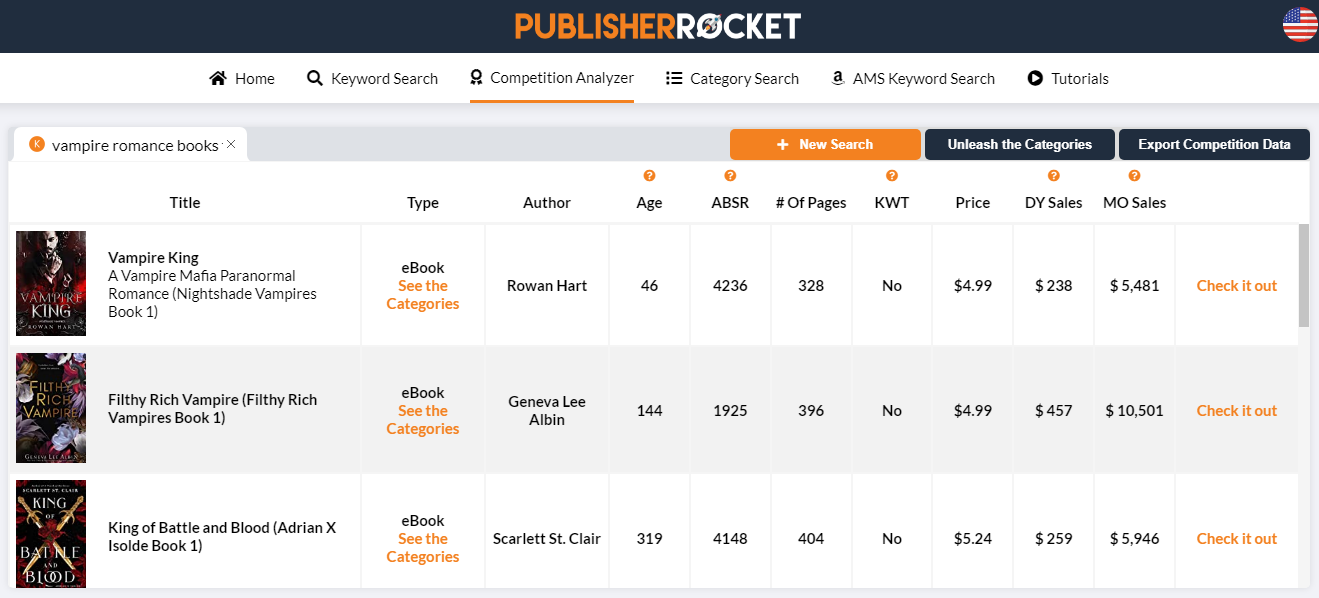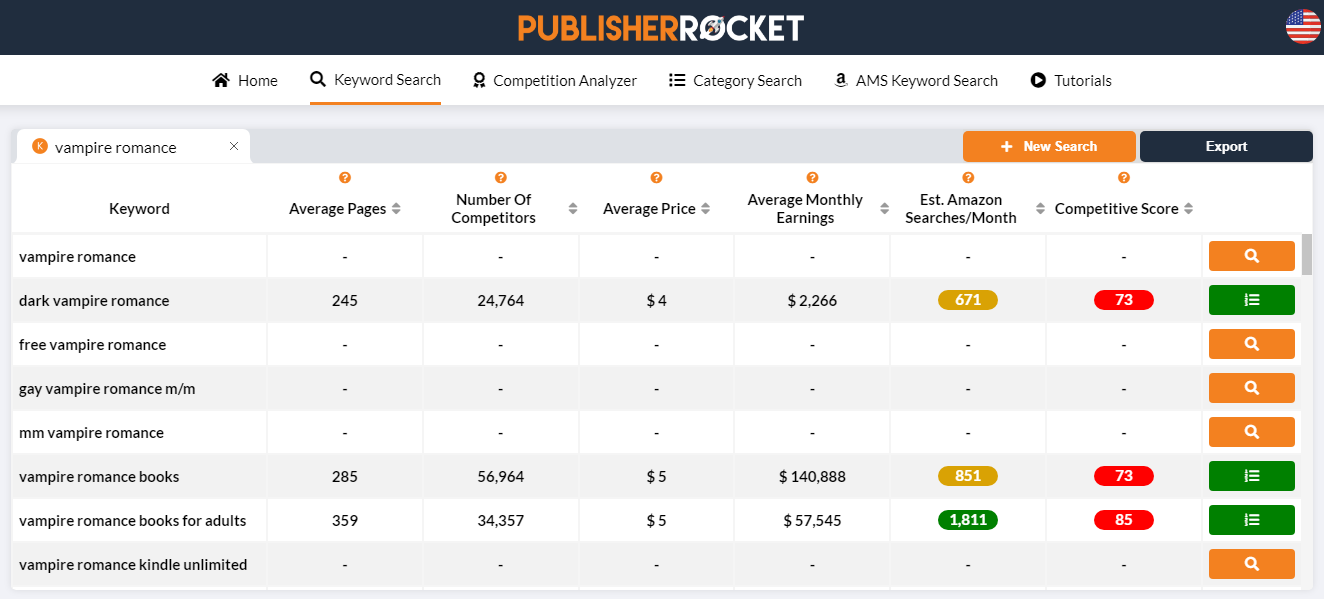Write to market is a very popular phrase, especially in the writing community. Once someone says they’re not selling their books, many people advise, ‘Have you tried writing to market?’.
But the truth is that writing to market is beyond selling books because it’s the best way to write books that already have a demand, that is, books with themes and tropes that people are searching for. People who successfully write books to market don’t just write books that sell, but they also write books with good reviews and ratings which usually attracts more readers.
In this article, I will be breaking down what writing to market is and what it’s not, as well as answering the question, ‘how do you write to market?’
What writing to market is
Writing to market is not as easy as it seems. It’s very easy to fail at it. And it’s very difficult to excel at it. Mainly because many people don’t get it right. So the first thing we’ll address is What Writing to market is and what it isn’t.
Writing to market is:
- Doing research before you start writing
You can do research after you’ve written your book but you’ll need to do many revisions if you want to rewrite that book to market. So it’s best to do your research first, understand what readers want and expect, and write with that in mind.
- Strategically writing a book for a target audience
- Writing to reader expectations
For example, Werewolves have mates. Many readers looking for werewolf romance books want books where a werewolf meets their soul mate or mate, that special person who was made just for them by the world or a deity.
- Putting your own spin on popular themes and tropes
Although you’re writing to market, you’re not making dull copies of other books with different names and titles. If you do this, you will likely have very poor reviews.
The best way to go about this is to first understand the genre, trope, or themes like strong (or badass) Female protagonist, rejected mates, dystopian, etc., and put your unique spin on them.
What writing books to market is not
Don’t be led astray, writing to market is not:
- Writing books you don’t enjoy
You can write stories that you’re passionate about while still writing to market.
It’s still your story idea, the only difference is that you’ve incorporated certain elements that are popular in your genre in an interesting way to boost sales.
Here’s the truth, if you’re writing to market in a genre you don’t enjoy, your readers may notice and you will hate every minute of it so don’t go looking into genres you don’t like or enjoy.
- Writing to Trends
If you’re not careful, it is very easy to slip from writing to market to writing to trends because they look similar. But they’re not the same.
Writing to trend involves looking for the tropes, topics, or themes that are selling really well today because of a current event, a popular movie, or something else, and then publishing a similar book before the trend fizzles out so you can make money.
An author that writes to trend has to be incredibly quick in the writing and publishing process. So, the quality of books that were written to trend chase can be very questionable at times.
And if you’re not careful, the trend you worked so hard to write for might have become unpopular by the time you publish.
- Formulaic Writing
Many authors protest against writing to market because they think it’s formulaic writing but it’s not.
Let me give you a solid example, Twilight was written with popular vampire and werewolf tropes in mind but it wasn’t formulaic in any way. Instead, the unique way the author put a spin on Vampires and Werewolves tropes made it a bestseller.
- Writing Cliche fiction
Just because you’re writing to market doesn’t mean you need to write cliche and cringe-worthy fiction.
Interested in Self-Publishing? Learn more about Self-Publishing books here.
How to Write to Market
1. Research
Your main task if you want to write to market is doing research.
You need to research tropes, genres, themes, or topics that are selling right now or have become popular for a while.
The best way to do your research is to look into a genre you like to write or read about, then find the keywords, topics, and tropes that are really popular there.
You’re not writing to trend so your main focus is not on what is selling well now, it is on what readers are asking for and searching for that has lasted over time or the tropes or genre expectations that are popular among readers.
How to research fiction books and genres
- Check the top 100 books in the categories you’re interested in.
Here you’re looking at the consistencies within those books, their covers, metadata, their themes, and niche.
- Research Using Lists
Check the top 100 bestselling books on Amazon lists, Apple lists, USA Today, New York Times, etc.
- Goodread’s Top/Most Read Lists like this one.
- Use K-lytics reports (Very expensive but some authors have said it’s worth it).
- Use this Amazon Keywords Guide article and Publisher Rocket to research categories and keywords on Amazon.
- Use free keyword research tools like KWFinder and Google Keywords Planner or paid ones.
- Join writer and reader communities related to your niche, genre, etc.
- Stay tuned to the genres, tropes, and topics in the market.
2. Research Your Competition
Beyond doing regular research where you’re examining reader expectations, you can also write to market by researching the best sellers in your genre or niche.
What are they doing that makes them stand out? What makes their books appealing or attractive?
Here are a few tips for researching your competition:
- Read some of the books.
- Check their reviews. What their readers liked and didn’t like.
- Check their book descriptions. if you’re not reading the book, you should be able to get the gist of the book from the book description and book reviews.
Other than Amazon keyword and category research, Publisher Rocket also has a competitor analysis tool that gives you insight into how much your competitor is earning, their bestseller rankings, the categories they’re in, etc.

3. Read books in your genre
Not all authors like to read books in their genre. But you may not be able to understand what readers enjoy about books in your genre if you’re not reading books in that genre.
You don’t need to read all the books, you just need to read the most popular ones you’re interested in once in a while and identify the elements you liked, didn’t like and the elements readers liked and didn’t like. And then, remember that when writing.
4. Chase the longer lasting Trends
While I don’t advocate writing and publishing subpar and almost formulaic books to suit new trends, you can write for long-lasting trends.
For example, reverse harem has been quite popular for a long while now (3+ years now). Yes, it has risen and dropped off, over and over again, but there are people who still read it and enjoy it.
Rather than chasing trends that only last for a few months, you should chase longer-lasting trends because there is a big possibility that they’ll become popular again, maybe not this year but next year or sometime soon. Because long-lasting trends are cyclical. They might drop now but they may still rise later.
4. Let your readers know
If you’re writing books to meet certain reader expectations, you need to make sure they know.
Let your readers know that your book has elements of a certain trope, genre, or theme with your book title, subtitle, description, and metadata.
This way you can see the viability of that genre or trope not just from your sales volume but also via your reviews.
Final Thoughts
Many authors don’t like to hear the words ‘write to market’ because they feel like it detracts from their creativity.
So I want you to see writing to market and the research involved as staying in tune with the market to know if there are people interested in your story idea or not.
This way, you can sell more books on Amazon and other book retailer platforms, and make more money writing books.










